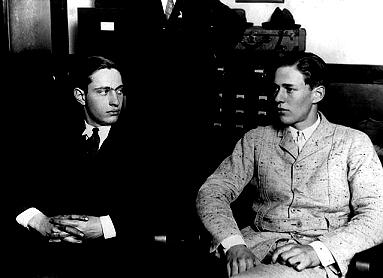
Philosophy of Human Nature
| Andrew
Mills'
Homepage |
Course
Resources
Homepage |
Dept.
of Religion
and Philosophy |
 |
Integrative
Studies 250
Philosophy of Human Nature Fall Quarter 2001
|
Instructions: Think about your assigned question, and write out an answer. It need not be a perfect paragraph, but it should be more than a note or two. Then, when you are asked to do so, gather together in your groups and discuss your answers. Arrive at a consensus answer and write it down. This should be legible, as you will turn it in to Prof. Mills at the end of class.
1. Ayer gives a number of examples of constrained acts.
(b) What do the examples have in common? That is, attempt to characterize what features of an act make it a constrained act, and what distinguishes a constrained act from an unconstrained act.
3. Does the fact that your action might be predicted with as high a degree of accuracy as you could demand threaten the freedom of those acts? Whatís Ayerís view? Whatís your view? Give reasons for your position.
4. A man puts a gun to my head and threatens me into doing something.
He does not move my limbs for me or hypnotize me. I can disobey him (and
suffer the consequences) if I want to. Why is this a case of constraint,
according to Ayer? Do you agree that this is a case of constraint? Why
or why not?